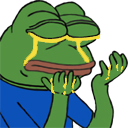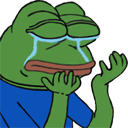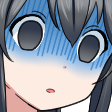- Home
- Life of Being a Crown Prince in France
- Chapter 813 - Chapter 813: Chapter 721: Defending the Motherland with Life
Chapter 813: Chapter 721: Defending the Motherland with Life
Catherine II took a deep breath, gazed at the officers standing solemnly around her, and said calmly, “So, which army corps is currently closest to Crimea?”
Zubov answered without hesitation, “Morcoff Army in Mozhili…”
Everyone cast dagger-like glances at him.
Marshal Leipnin quickly interrupted, “Your Majesty, the Saratov Army turned south a week ago; they should arrive in Crimea in about a month and a half.”
The Tsar shot him a glance, her voice growing icy, “A month and a half. Fine, now tell me this–can Bakhchisaray hold out for even a month and a half?”
Leipnin lowered his head in silence.
He knew that the Polish Army in Crimea, which had managed to take down the Kursk Fortress, likely wouldn’t need such a long time to breach Bakhchisaray–even if they were currently lacking supplies.
Catherine II slammed her plump hand on the table and scanned the room again: “Who can tell me who to send now to deal with those Poles?”
Marshal Rumyantsev braced himself and stepped forward, saying, “Your Majesty, perhaps Count Zubov is correct. The most prudent course right now would be to order the Morcoff Army Corps to march south. If they engage in forced marches, they can arrive at Bakhchisaray in just 20 days.”
Catherine II suddenly seemed unable to contain her fury any longer. She stood up abruptly, pressing both hands against the table and shouted: “Shame! It’s a disgrace to the Empire!
“A mere force of over 10,000 Polish troops are roaming freely within our borders! They’re nearly destroying Crimea!”
“You, two months ago, stood right here and told me that we didn’t need to bother with these Poles–that they would starve to death.
“And now?
“They’re starving their way into attacking Bakhchisaray!”
She turned to Zubov with gritted teeth, “Arrest Korezenikov immediately. That incompetent fool!”
She then turned toward Rumyantsev: “Is there no other solution?”
The room fell silent.
Catherine II sank back into her chair, waved her hand weakly, and said in a defeated tone, “Do as you said–dispatch the Morcoff Army to Crimea.
Add more troops and place Kahovski in command. I don’t want to hear any more bad news.”
“Yes, Your Majesty.”
Both Kahovski and Rumyantsev stood at attention, exchanging a helpless glance.
They knew that to ensure success, at least 30,000 soldiers needed to be sent south from the Morcoff Army.
As a result, that would leave the Russian Army near Mozhili with fewer than 40,000 troops.
Meanwhile, the confronting Polish Army totaled nearly 50,000.
Forget advancing further–the Poles might even organize a counteroffensive, emboldened by their numerical superiority.
The initial Polish strategy of a swift victory was no longer achievable.
And given the Empire’s current financial situation, sustaining a prolonged national war seemed unlikely.
The ultimate outcome of the Russo-Polish War had already become highly unpredictable.
…
25 days later.
Crimea.
Polish Expeditionary Force Headquarters.
Kosciuszko flipped through the organizational report in his hands and said to his aide, “Have these 300 men placed under Swiechczyk’s command. Many of them fought in the Russian-Turkish War; they should prove to be of some use.”
Indeed, during the time he besieged Bakhchisaray, the local Ottoman people had flocked to join his army.
Altogether, their numbers exceeded 600 men–a number Kosciuszko had carefully filtered. Without his discretion, an Ottoman Army of over a thousand could easily have been assembled.
At that moment, East Brovsky pushed the door open and entered, his expression grave as he looked at the commander-in-chief and said only one word: “They’ve arrived.”
Kosciuszko nodded. “Later than I expected. How many?”
“Close to 30,000,” East Brovsky replied. “Their commander is Kahovski.”
“Hmm. So the Russians are finally taking us seriously.”
“Should we proceed with the original plan?”
“Yes.” Kosciuszko stepped forward and patted the cavalry commander’s arm, smiling, “We’ve successfully drawn the Russian troops out of Mozhili. That alone counts as a victory.
For the rest, just do your best. Whatever results we achieve will be Jesus’s reward to us.”
East Brovsky laughed along with him, remarking, “But with so many enemies, I wonder if we can hold out for two days?”
Initially, they had estimated that the Russians would send at most 20,000 troops; now, the numbers were far beyond their expectations.
In reality, Kahovski had mobilized 35,000 men from Mozhili, but due to continuous forced marches, many soldiers had fallen behind. By the time they arrived in Crimea, fewer than 30,000 remained.
Following Kosciuszko’s orders, the Polish Army moved into action immediately.
Colonel Swiechczyk led 2,000 Polish soldiers and 600 Ottoman troops in a relentless attack on Bakhchisaray City.
Meanwhile, Kosciuszko personally commanded 10,000 troops in Crimea’s northern region near Voinka to intercept Kahovski’s Russian Army.
Yes, Kosciuszko knew that his force had no chance of returning to Poland. His only goal was to inflict as much damage on Russia as possible before being defeated.
He gave Swiechczyk two days to break through Bakhchisaray City and carry out destructive damage.
In other words, Kosciuszko had to hold off an enemy force three times the size of his own for a full two days.
With Crimea’s central and northern plains offering no natural defenses, direct confrontation was inevitable.
On that afternoon, Kosciuszko had already begun arranging multiple infantry lines at the narrow land bridge connecting the Crimean Peninsula to the mainland.
Less than an hour later, the Russian vanguard appeared within their sights.
Kosciuszko rode his horse past the soldiers without delivering any passionate speech; he simply raised his sword and shouted, “With our lives, we defend the motherland!”
All Polish soldiers immediately echoed in unison, “With our lives, we defend the motherland!”
From the moment they left Poland, none of them ever imagined they’d return alive.
This phrase had long been etched into the hearts of each and every one of them.
Now, it was time to fulfill its meaning.
Everything felt as natural as breathing, yet burned like a roaring flame!
By 3 p.m., Kahovski initiated the attack.
Having come off a forced march, the Russian Army didn’t possess significantly more cannons than the Polish forces.
After a brief artillery duel, the Russians launched a frontal assault.
Simultaneously, leveraging their numerical superiority, Kahovski deployed seven infantry regiments to flank the Polish forces from both wings.
However, to Kahovski’s surprise, Kosciuszko had no intention of holding defensive lines. In the instant the Russian troops began moving, the King’s Third Division launched a direct counteroffensive.
With a suicidal resolve, accompanied by the military drumbeats, the Poles charged forward like cold, unyielding machines, advancing relentlessly to within 60 paces of the center of the Russian Army.
If you find any errors ( broken links, non-standard content, etc.. ), Please let us know via our discord so we can fix it as soon as possible.
















































